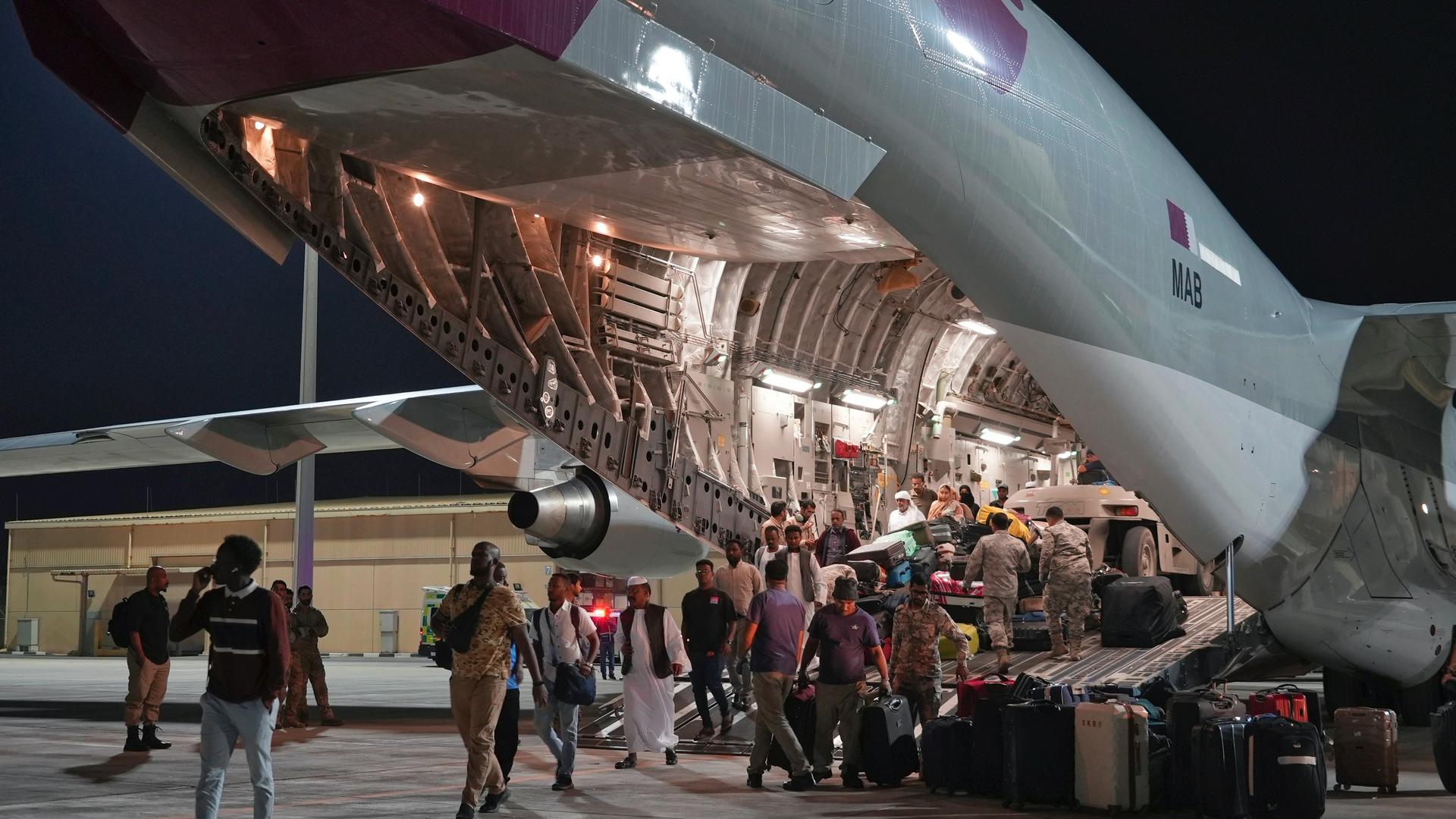Shakir el-Hassan and his family were forced to flee their home in Khartoum last year when fighting broke out between rival generals of the Sudanese Armed Forces and the Rapid Support Forces (RSF) paramilitary.
The fighting was sparked by a disagreement over integrating the two forces, which was seen as a key step in the yearslong effort to transition Sudan to a civilian-led democracy after decades of dictatorship.
In December, war arrived at the doorstep of Hassan’s new home in Wad Madani — where hundreds of thousands of internally displaced people had already sought safety.
Hassan and his family, fearing for their safety, fled once again, this time to Kassala.
“The town now is so, so crowded,” he said. “People are sheltering in schools and other buildings, people are sheltering in open areas.”
Today, more than 7.7 million people have fled their homes in Sudan, which is experiencing one of the worst humanitarian emergencies in the world.
Hassan works for CARE, one of the nongovernmental organizations working around the clock to provide humanitarian relief to the millions of civilians impacted by a crisis that remains grossly underfunded and overlooked.
Before last year, Hassan said, he never imagined he would one day have to flee himself.
“Now, it is very clear for me, what does it mean to leave your home. Sheltering in another place, strange for you, not sure what is going to happen tomorrow.”
Multiple international and regional efforts at ending this conflict have failed so far.
Earlier in January, RSF leader Gen. Mohamed Hamdan Dagalo, known as Hemeti, met with Sudan’s former Prime Minister Abdalla Hamdok, who is leading a civilian-directed peace initiative called Taqaddum.
In a speech, Hemeti claimed he was ready for peace and called on the army to come to the table. But on the ground, Hemeti’s forces continue to fight for military gains, bringing with it more reports of killings, looting and rape of innocent civilians.
On the other side of the war, Gen. Abdel Fattah al-Burhan of the Sudanese Armed Forces has said there would be no reconciliation with the RSF and has instead encouraged civilians to arm themselves.
“Neither party is serious about ending the war,” said Amgad Farid Eltayeb, executive director of the Fikra for Studies and Development, a Sudanese policy tank and former assistant chief of staff to Hamdok.
“[They are] two morally compromised factions who are fighting for illegitimate spoilings of controlling the country,” he continued.
Eltayeb argued the recent Taqqadum peace initiative has given Hemeti political leverage and legitimacy as he seeks to present himself as Sudan’s next leader in his overseas visits.
The international community needs to step up to end the fighting in Sudan, Eltayeb said.
“What we are seeing right now is scandalous, and it’s shameful — that we have Sudan turning from a country that’s going in the path to civilian and democratic transition to becoming [one of] the biggest humanitarian crises in the world.”
Eltayeb said that at this point, Sudan needs direct, international intervention to stop the fighting.
With every passing day, the humanitarian needs in Sudan continue to grow.
“Every day, I see people arriving here in Kassala. Yesterday, I was in the bus terminal. The tents prepared for receiving people [are] full, and buses are coming with more people” Hassan said.
He said that he worries about the psychological impact this war is having on children who have now been out of school for nearly a year.
During art lessons organized by a local nongovernmental organization, Hassan said his daughter and other children were drawing pictures of armed men with machine guns.
“This is something that millions of Sudanese children have seen, and it will take too long to drop from their memory.”
